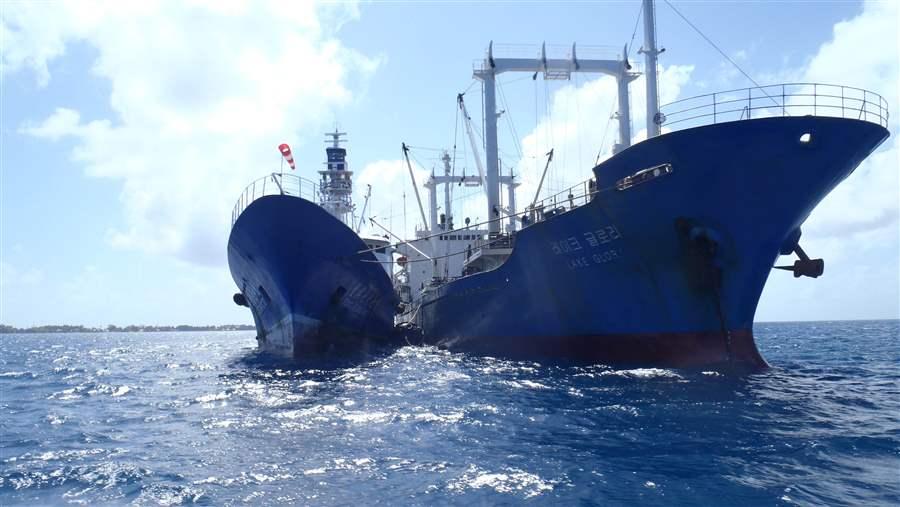Global Transshipment
Working to make transfers of catch transparent, legal, and safe
Transshipment, the transfer of fish or other marine wildlife between a fishing vessel and a carrier vessel at sea or in port, is an important part of the global commercial fishing industry. Valuable tuna species, mackerel, and crabs are among the freshly caught seafood transshipped each day in order to shorten the time it takes to get the fish from the sea to the store.
While transshipment may seem like an efficient means to that end, it is often associated with illegal, unreported, and unregulated fishing. These activities often take place on the high seas and outside the view and reach of authorities. It is estimated that in the western and central Pacific Ocean alone, at least US$142 million worth of tuna and tunalike species are moved in illegal transshipments each year. A lack of effective monitoring and controls makes it easy for bad actors to obscure or manipulate data associated with transhipping events—and can foster conditions that lead to other transnational crimes, such as trafficking in humans, weapons, and drugs.
The path forward for transshipment reform
The Pew Charitable Trusts is working to establish clear and consistent global rules for monitoring and controls of transshipment and to increase regulatory management of these activities. This work is being carried out across multiple bodies, including the U.N. Food and Agriculture Organization’s Committee on Fisheries and several regional fisheries management organizations.
Reforming transshipment will not be easy. The ocean is vast, and the number of vessels involved is large. But it can be done through clear and proven technological solutions, stronger oversight, and a commitment to transparency from all parts of the fishing industry.











